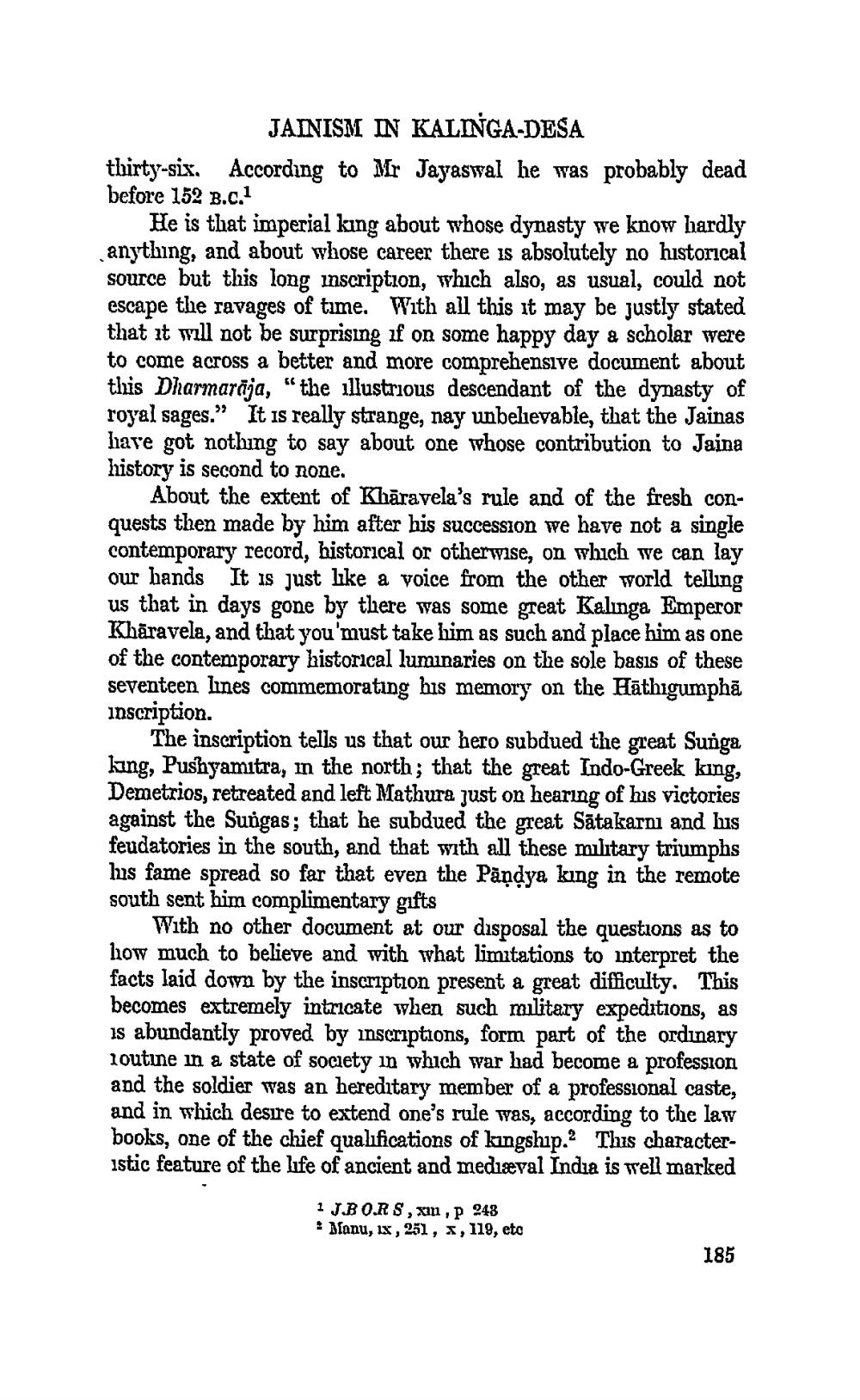________________ JAINISM IN KALINGA-DESA thirty-six. According to Mr Jayaswal he was probably dead before 152 B.C.1 He is that imperial king about whose dynasty we know hardly anything, and about whose career there is absolutely no historical source but this long inscription, which also, as usual, could not escape the ravages of time. With all this it may be justly stated that it will not be surprising if on some happy day a scholar were to come across a better and more comprehensive document about this Dharmaraja," the illustrious descendant of the dynasty of royal sages. It is really strange, nay unbelievable, that the Jainas have got nothing to say about one whose contribution to Jaina history is second to none. About the extent of Kharavela's rule and of the fresh conquests then made by him after his succession we have not a single contemporary record, historical or otherwise, on which we can lay our bands It is just like a voice from the other world telling us that in days gone by there was some great Kalinga Emperor Kharavela, and that you'must take him as such and place him as one of the contemporary historical luminaries on the sole basis of these seventeen lines commemorating his memory on the Hathigumpha inscription. The inscription tells us that our hero subdued the great Sunga kang, Pushyamitra, in the north; that the great Indo-Greek king, Demetrios, retreated and left Mathura just on hearing of his victories against the Sudgas; that he subdued the great Satakarni and his feudatories in the south, and that with all these military triumphs his fame spread so far that even the Pandya king in the remote south sent him complimentary gifts With no other document at our disposal the questions as to how much to believe and with what limitations to interpret the facts laid down by the inscription present a great difficulty. This becomes extremely intricate when such military expeditions, as is abundantly proved by inscriptions, form part of the ordinary routine in a state of society in which war had become a profession and the soldier was an hereditary member of a professional caste, and in which desire to extend one's rule was, according to the law books, one of the chief qualifications of kingship. This characteristic feature of the life of ancient and medieval India is well marked 1 J.BORS, xin , 243 : Manu, ix, 251, 2, 119, eto 185




